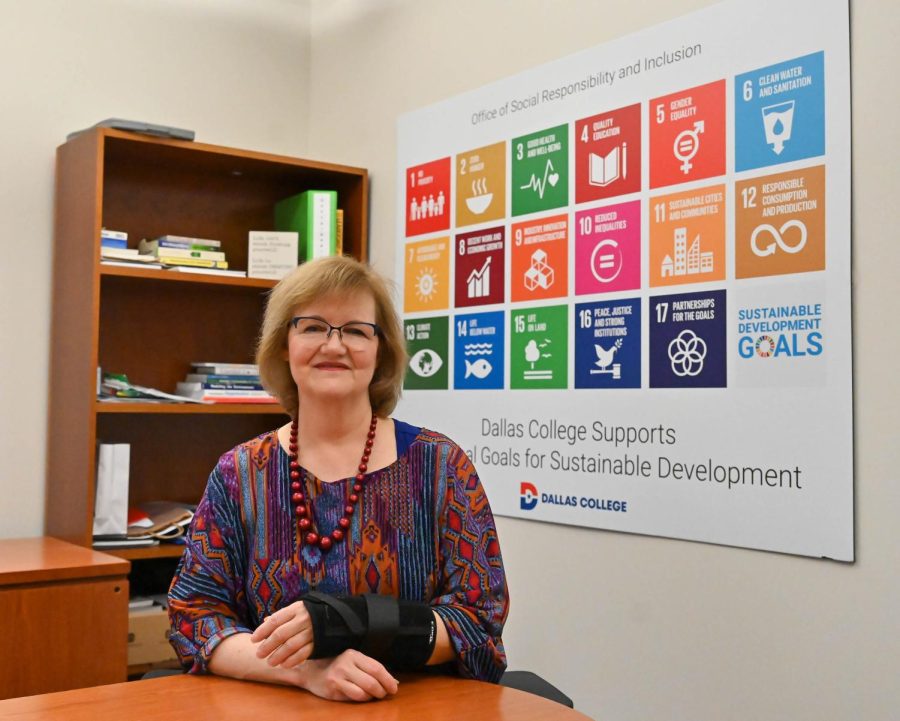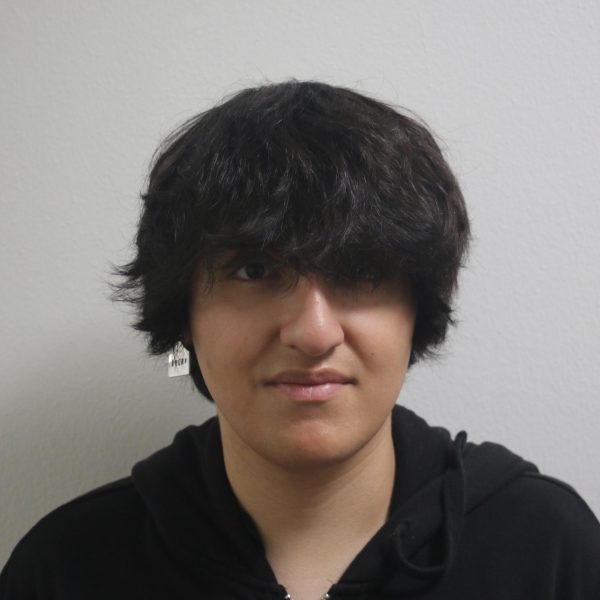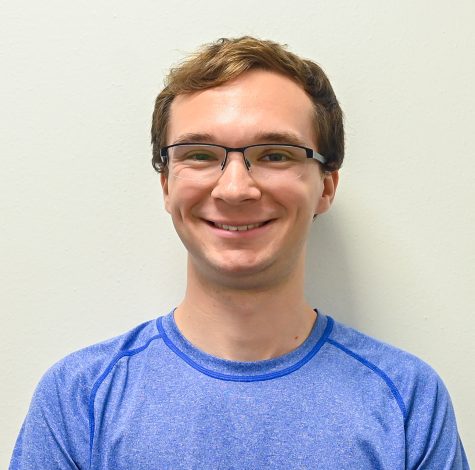Q&A: Sustainability director keeps Dallas College green
Georgeann Moss leads an environmental task force with a goal to build eco-friendly infrastructure at Dallas College. Photo by Rory Moore/The Et Cetera
April 5, 2022
As the senior director of sustainability, Georgeann Moss consistently pushes to make Dallas College’s campuses as eco-friendly as possible. This includes being one of the orchestrators behind the college’s transition to a 100% renewable energy plan.
Moss joined The Et Cetera managing editor Carmen Guzman in a video interview to reflect on 30 years of work in protecting and sustaining the environment.
Q. What has kept you in this field for 30 years?
It’s my passion in life. I’m one of those very blessed people who gets to do what they love in their job. I’ve always been interested in the environment. In an earlier position, I worked with Dallas Water Utilities to teach water conservation. Since 1989, I have been working in a job as well as in volunteer positions to protect the environment.
Q. What initially motivated you to work in your current field?
I am very concerned about our world and what will happen if we don’t take care of the environment, and so my motivation is my children and my grandchildren. I want to leave the world as good or better than I found it for them.
Q. Do your kids share your passions for the environment?
My son, Ryan, is an environmental engineer. He’s a water resources engineer for an engineering firm in Houston. My two older children are step-children, and they are very supportive of sustainability in the environment.
Q. Do you apply knowledge from your job at home?
We live in Sunnyvale, and [my family built the first green home in Sunnyvale. I’ve applied a lot of what I learned on the job in the house. For instance, instead of two-by-fours, we use two-by-sixes for framing. And then we put spray and foam in there so it’s like living in a cooler. It’s very well insulated. We have done all the energy-efficient windows and low-flush toilets. Everything that I’ve learned over the past 30 years we’ve tried to practice in our home.
Q. What is your proudest sustainability project?
The first one that comes to mind is that last year Dallas College signed its first ever 100% renewable energy electricity contract. That took a couple of years to get that to come about. Right now, we’re also working on a project with that. We use renewable energy credits — that means somebody, somewhere, has built a solar farm or wind farm. The next step we want to take is building solar on-site at our campuses. It’s a more effective way to add renewable electricity to the [college’s] power grid.
Q. I’ve noticed that you earned the Green Source Lifetime Achievement Award. Can you tell me more about that?
I’m very, very proud of that. A colleague put in my name for that because I’ve been doing work in the community for the past 30 years. I was voted to receive it in 2015. To be recognized by your colleagues and peers is just very, very special to me. And, quite frankly, I’ve been working with a lot of people in the community for 30 years. People who go into sustainability are determined and persevere. They don’t give up. They know that we must be resilient, and we must be sustainable in our efforts.
Q. In your current position, do people come to you as a leader?
Even before I had this position, I was recognized by people in the organization as the sustainability change champion. I am known throughout the organization for being a champion for sustainability. And for being open to partnerships and collaboration with anyone who wants to help us improve our practices in sustainability.
Q. What’s your approach for influencing change?
My approach is to be very collaborative and nonjudgmental. I understand that people in organizations do things the way they do for a reason, and I try to work with them. [My organization is] not adversarial. We’re their partners,
and we work with them. We recognize that change takes time, and we’re willing to work as long as it takes.
Q. Where do you plan to go from here?
So right now, our team is working on the STARS self-assessment — STARS stands for the Sustainability Tracking Assessment and Rating System. We like to find five major areas across the college, then we see where we have opportunities for improvement. It’s a huge, huge project. We’ve been working on it for over a year.
What’s good about it is that we’re on the path, but you’re never really finished, right? There’s always something new coming along that we learn about and can do. It covers academics, outreach, engagement, planning and innovation. We look across all those areas and make sure that we are following the best practices of other colleges and universities across the United States.





